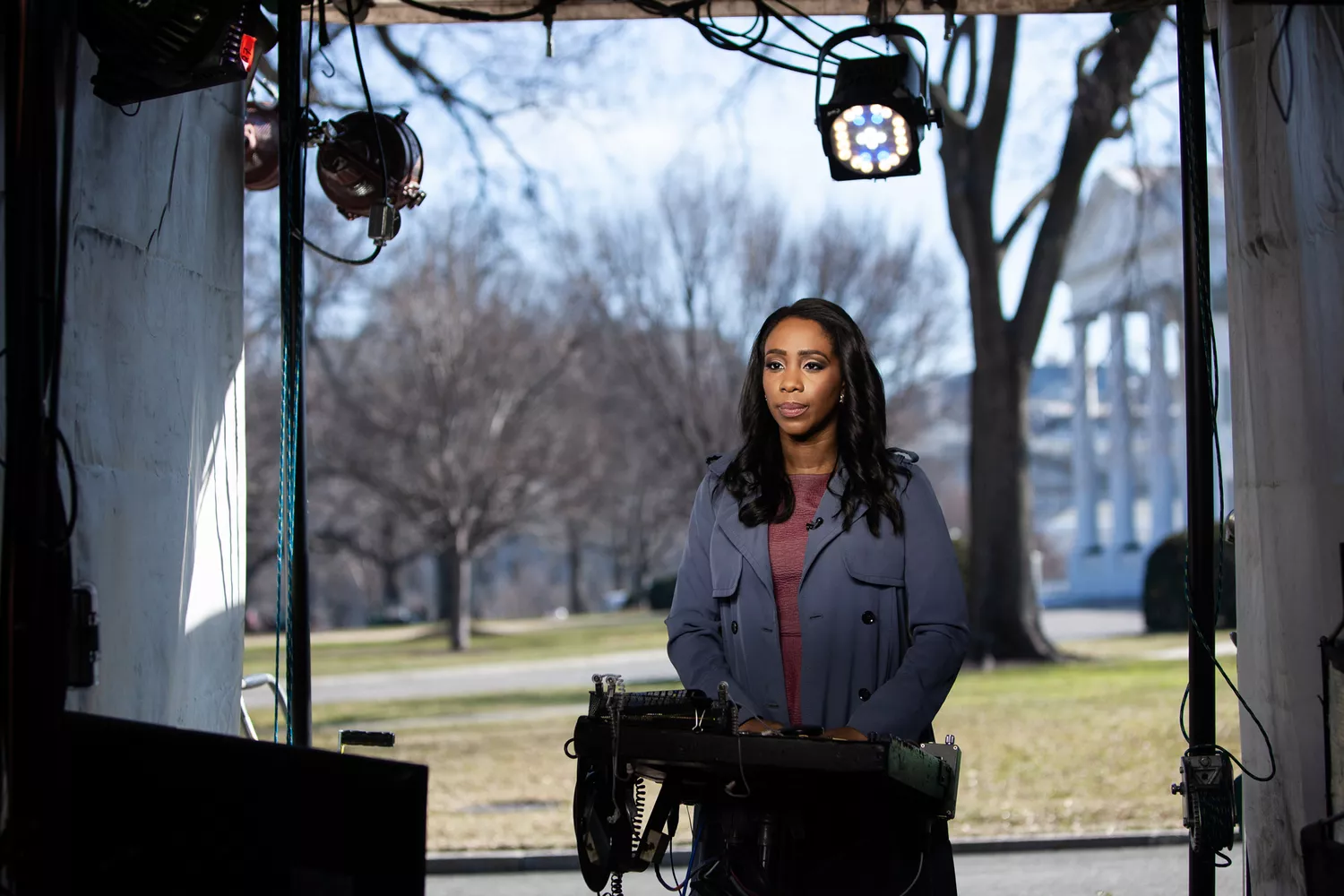Collins, 26, lands the very first question, referring to something Trump had just tweeted seconds before: “Sarah, what does the president imply when he states he’ll build a human wall if necessary?”
Collins and Phillip have actually been up since 6 a.m. keeping track of news advancements and being in hair and makeup, and they’ll turn reporting on- and off-camera for a grueling 12 hours before Trump addresses the nation. They roam the White House press location with imperturbable self-confidence, regardless of both having taken some headline-making abuse from the president in the previous year. Trump banned Collins from a Rose Garden event in July after she asked Russia-related questions he didn’t like, and the president verbally assaulted Phillip during a White House interview in November for inquiring about the investigation versus him.

” What a stupid concern,” Trump snapped at Phillip, a 29-year-old black lady. “But I see you a lot. You ask a great deal of foolish concerns.”
The reporters mainly took the rebukes as a compliment, they inform me in a joint interview outside the White House. “If he gets upset about a concern, it’s kind of a sign that you’re onto something essential,” Phillip states. “It is in some cases a little challenging, since he’s the president of the United States and he’s pointing his finger at you. You have to simply keep trying to get answers out of him.”
” It’s crucial not to let it get to you,” Collins includes. “If you do, then you reinforce their stereotype that the media is biased and we want to argue with the president, which we don’t.”.
Collins and Phillip are two of about a lots female anchors and correspondents CNN had actually stationed around Washington on Tuesday to produce day-and-night coverage of Trump’s address. They explain themselves as a “sisterhood.” The older ones mentor the younger ones. The new moms, of which there are a number of, share infant clothing and parenting tips. They vent to each other about online harassment– an issue pestering many female reporters today.
” Every day there’s a brand-new tweet about me getting lip injections,” chuckles Pamela Brown, a senior White House reporter for CNN, who has a seven-month-old child in your home. “I never got lip injections in my life. You’re like, ‘don’t these people have anything better to do?'”.
Nods to females’s empowerment are all over: A pink “battle like a woman” pillow on a fuzzy white bench. A framed poster of Wonder Woman. A quote on the wall that states, “Don’t let your emotions make you their bitch.”.

“What makes me unpleasant every single time I have to do it is to have to be on the air and say, in some shape or kind, ‘What the president of the United States just stated isn’t true,'” states Bash. “When you are being anti-lie or pro-truth, you come across as being anti-Trump or pro-Democrat, and it’s an extremely tough thing for those of us who are just working reporters and still think in the idea of neutrality.”.
Borger concurs, including, “The other thing that’s difficult about covering this administration is simply the mach speed at which whatever changes every day. By Friday, I have a tough time remembering what took place on Monday.”.
Dealing with these reporting difficulties is especially tough for the women who have children at home. You’re taking on a lot when you’re a mommy doing this task, and I’m just starting to figure out what kind of assistance is there for military partners,” she says.
Keilar works long hours, however her schedule is relatively stable because she’s an anchor. Over at the Capitol, congressional correspondent Sunlen Serfaty, who has a one-year-old at home, is running through the hallways chasing after down Senators.
It was, and Serfaty got Senator John Cornyn for an on-camera interview about the upcoming SOTU, which at that point was a few hours away, and then resumes our conversation. She informs me that she got up at 5:45 a.m. so she might squeeze in an exercise before her long day. “I inform people doing this job seems like being a lumberjack spinning on a log in the water,” she states, making the running gesture with two fingers. “You need to simply keep going.”.
About an hour before the 9 p.m. speech, congressmen and visitors submitted into the House chamber, and CNN switched to live protection of the occasion. Bash remained in the middle of the action, getting increasing Democratic star Alexandria Ocasio-Cortez for an on-camera spot. In a studio back at head office, CNN hosts Jake Tapper and Wolf Blitzer saw the interview with Kate Bennett, the network’s Melania Trump correspondent, waiting to go live and weigh in. Bennett is so comfortable on television that she was doing dance relocations in her chair, making funny faces at me, and trading jokes with Tapper before their panel.
” I’m type of a dork,” Bennett, a previous style editor, discusses to me later on. “It’s a long night for a great deal of individuals, and this is a high-pressure time. Not that I’m here to be a jokester, but let’s keep in mind that we’re all human beings.”.
Of course, the jokes stopped when the show began, and CNN’s deep bench of on-air females took their places in various studios to view and check out the speech. A team of producers in the control-room fact-checked Trump’s declarations in real time, feeding that info to the skill for their post-show analysis. A few of them, by the end of the night, had worked about 15 hours.
I was struck by the heat and unpretentiousness of all of these women. “Shine theory,” a term coined by reporter Ann Friedman and her podcast co-host digital strategist Aminatou Sow, is the facility that if females collaborate with one another rather than completing, it enhances everyone’s success– everybody shines.
If it is possible to be a dogged press reporter, boundlessly ambitious, and likewise bring up the ladies behind you, these ladies are showing the way. I ask Bash if she has her dream job. “It’s quite close,” she says, smiling. “As a type-A lady, I always desire more.”.